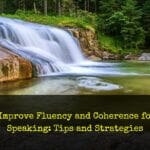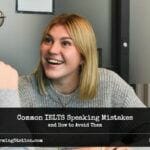1. Introduction
The IELTS Speaking test consists of three parts and lasts for approximately 11-14 minutes.
In Part 1 of the speaking test, the examiner asks the test taker a series of questions designed to help them get to know the candidate and assess their ability to communicate in English.
The questions in Speaking Part 1 are typically about the test taker’s background, interests, hobbies, and daily life. The questions may include topics such as:
- Your hometown and where you live now
- Your work or study
- Your hobbies and interests
- Your family and friends
- Your favorite foods and restaurants
- Your daily routine
The purpose of Speaking Part 1 is to assess the test taker’s ability to answer simple and direct questions in English, and to speak fluently and with coherence. The examiner will be looking for the candidate’s ability to provide clear and concise answers, use appropriate grammar and vocabulary, and engage in a conversation with the examiner in a natural and confident way.
Speaking Part 1 lasts for 4-5 minutes, and it is designed to help the test taker relax and feel comfortable before moving on to the more challenging parts of the Speaking test.
Here are some sample questions that may be asked in IELTS Speaking Part 1:
- Can you tell me your name and where you’re from?
- What do you do? Are you a student or do you have a job?
- Do you enjoy your job/studies? Why or why not?
- What kind of music do you like to listen to?
- Do you prefer spending time indoors or outdoors? Why?
- Do you have any hobbies or interests?
- What is your favorite type of food? Do you like to cook?
- Do you prefer watching movies or reading books? Why?
- How do you usually spend your weekends?
- Are you close to your family? Can you tell me about your family?
These are just a few examples of the types of questions that may be asked in IELTS Speaking Part 1. It’s important to remember that the questions can vary, and you should be prepared to answer a variety of questions on different topics. Practicing with a variety of sample questions can help you build your confidence and improve your ability to speak fluently and coherently in English.
2. Best practicing strategies for IELTS speaking part 1
Here are some important practicing strategies for IELTS Speaking Part 1:
Practice speaking regularly: The more you speak, the more comfortable you’ll become with the language. Try to speak English as often as possible with your friends or family members, or join a language exchange group to practice with other learners.
Record yourself speaking: Use a recording device to record yourself answering sample questions. Listen to the recording to identify areas for improvement in your pronunciation, grammar, and fluency.
Use practice materials: There are many IELTS Speaking Part 1 practice materials available online, including sample questions and practice tests. Use these materials to practice answering questions and familiarize yourself with the test format.
Work with a tutor: A qualified tutor can provide you with feedback and guidance on how to improve your speaking skills. You can find tutors online or in person who specialize in IELTS preparation.
Focus on accuracy and fluency: While it’s important to use correct grammar and vocabulary, don’t let this stop you from speaking fluently. Focus on maintaining a natural flow and rhythm when you speak.
Practice using different vocabulary: Use a range of vocabulary to express yourself accurately and clearly. Practice using synonyms, idiomatic expressions, and phrasal verbs to add variety to your answers.
Practice managing your time: Keep track of time during your practice sessions to ensure that you can answer each question within the allotted time. This will help you build your confidence and improve your test-taking skills.
By following these practicing strategies, you can build your confidence and improve your ability to speak fluently and coherently in English, which will ultimately help you perform well on the IELTS Speaking Part 1.
3. What are the characteristics of a good speaking part 1 response?
A good response should have the following characteristics:
Clear and accurate pronunciation: Speak clearly and confidently, ensuring that your words are well-articulated and easily understood by the examiner.
Appropriate vocabulary: Use a range of vocabulary suitable for the topic and try to incorporate less common words and phrases to showcase your language skills.
Fluency: Speak smoothly without long pauses, hesitation, or excessive repetition. It’s okay to have brief pauses as you think, but aim for a natural and uninterrupted flow of speech.
Coherence: Organize your thoughts and present them in a logical manner. Make sure your response has a clear structure with a beginning, middle, and end.
Grammatical accuracy: Demonstrate your command of English grammar by using a variety of sentence structures and verb tenses. Make sure your sentences are error-free and appropriately punctuated.
Answer the question: Respond directly to the question asked and provide relevant information. Stay on topic and avoid lengthy digressions.
Expand your answer: Instead of giving short, one-word answers, elaborate on your thoughts and experiences. This will demonstrate your ability to discuss a topic in detail.
Use examples and personal anecdotes: Share specific examples or personal stories to illustrate your points. This makes your answer more engaging and memorable.
Be natural and engaging: Show your personality in your responses. Be honest and genuine, and maintain a friendly tone throughout the conversation.
Practice active listening: Pay attention to the examiner’s questions, and make sure you understand them before you respond. If necessary, ask for clarification or rephrase the question to confirm your understanding.
By focusing on these characteristics, you can improve your performance in the IELTS speaking part 1 and increase your chances of achieving a high band score.
4. Sample questions and answers
In this section, you will see three different responses to each of the four Speaking Part 1 questions from Cambridge IELTS 16 – Test 1.
You may ask: why three different responses for each question?
Great question!
It is a good idea to study and practice giving different responses to the same question in IELTS Speaking Part 1. This is because the examiner may ask follow-up questions or ask you to elaborate on your answers, and having multiple responses prepared will help you to communicate more effectively and with greater fluency.
By practicing different responses to the same question, you can also build your vocabulary and develop the ability to express yourself in different ways. This will help you to avoid repetition and make your speech more interesting and engaging for the examiner.
Additionally, having multiple responses prepared will help you to feel more confident and prepared for the exam. The more you practice, the more comfortable you’ll become with the test format and the more likely you are to perform well on the actual exam.
Question 1
What did you study in history lessons when you were at school?:
Response 1:
When I was in school, I studied a wide range of historical topics, including ancient civilizations, the Renaissance period, and the World Wars. I found it fascinating to learn about different cultures and the events that shaped our world today.
Response 2:
In my history lessons at school, we learned about a variety of topics such as the Industrial Revolution, the American Civil War, and the French Revolution. I was particularly interested in the causes and effects of these events and how they impacted society.
Response 3:
During my time in school, I studied a lot of history. We covered topics such as the Roman Empire, the Age of Exploration, and the Cold War. I found it interesting to learn about the different historical figures and the role they played in shaping the world as we know it today.
Question 2
Did you enjoy studying history at school? [Why/Why not?]
Response 1:
Yes, I really enjoyed studying history at school. I found it fascinating to learn about different cultures, events, and people from the past. It was especially interesting to see how historical events have shaped the world we live in today. I also had a great history teacher who made the subject come alive and inspired me to learn more.
Response 2:
No, I didn’t really enjoy studying history at school. I found it quite dry and boring, and it was difficult to remember all the dates, names, and events. I preferred more practical subjects like science and math, where I could see the applications of what I was learning in real life.
Response 3:
To be honest, I had mixed feelings about studying history at school. There were some topics that I found really interesting, such as ancient civilizations and World War II, but there were also some topics that I found quite dull, such as the history of agriculture or trade.
Question 3
How often do you watch TV programmes about history now? [Why/Why not?]
Response 1:
I don’t watch TV programmes about history very often these days. As a full-time student, I don’t have a lot of free time, and when I do, I usually prefer to spend it doing something more active like going for a run or hanging out with friends.
Response 2:
To be honest, I hardly ever watch TV programmes about history. I find them a bit dry and boring, and I prefer to watch more entertaining shows like comedies or dramas.
Response 3:
I used to watch a lot of TV programmes about history when I was younger, but not so much anymore. Nowadays, I tend to watch more news and current affairs programmes, as I’m interested in keeping up with what’s happening in the world.
Question 4
What period in history would you like to learn more about? [Why?]
Response 1:
I’m really interested in learning more about the Renaissance period. I’ve always been fascinated by the art and architecture of that time, and I think it would be really interesting to learn more about the cultural and intellectual changes that happened during that time.
Response 2
There are so many fascinating periods in history, but I think I would like to learn more about the Industrial Revolution. I think it would be really interesting to learn about the technological advancements that were made during that time and how they changed society.
Response 3
I’m actually really interested in learning more about ancient civilizations like the Mayans and the Egyptians. I think it’s amazing how much they were able to achieve without the technology we have today, and I’m curious about their daily lives and how they built their impressive structures.





0 Comments